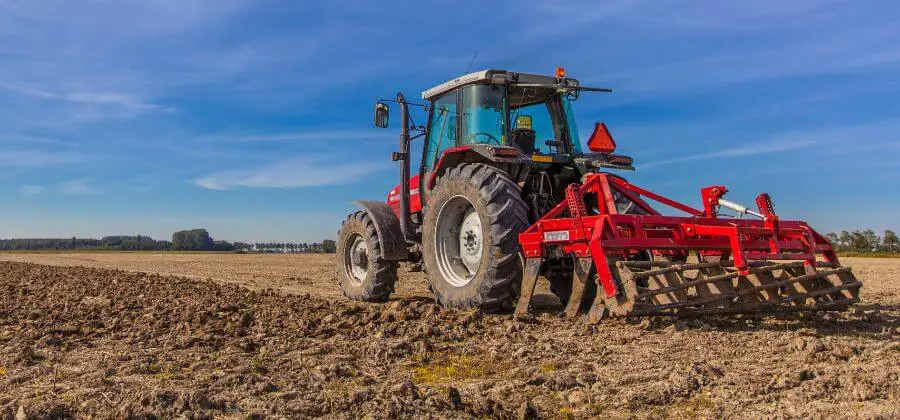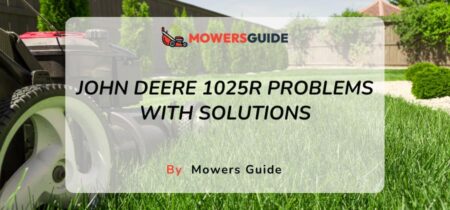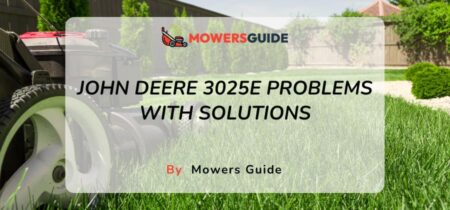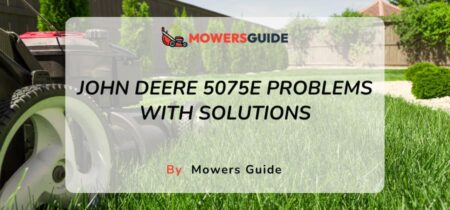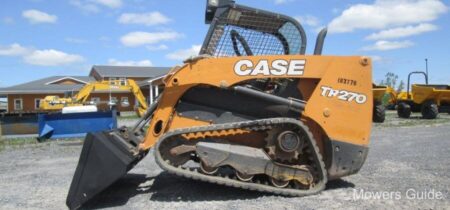Have you been having issues with your trusty old Ford 1710 tractor lately? As reliable as these machines are, even the best equipment needs some TLC from time to time. Maybe your tractor won’t start, it’s leaking fluids, the PTO won’t engage—the list goes on.
We’re going to walk through some of the most common problems with the Ford 1710 tractor and how to get your machine back up and running so you can get on with the long list of chores around the farm. After all, no one has time for equipment troubles when you’ve got fences to mend and hay to get in.
Common Problems of Ford 1710 Tractor
1) Engine Problems
If your Ford 1710 suddenly lacks power or won’t start at all, the problem is likely in the engine. Here are a few common issues to check:
The fuel filter could be clogged. Replace the filter—it’s an easy fix that should get you back in the field.
The fuel pump may have failed. Listen for the pump’s humming sound when you turn the key. If you don’t hear it, the pump needs replacement.
Faulty injectors can reduce engine power or prevent starting. Have a mechanic test and replace any malfunctioning injectors.
The alternator could be going bad, unable to charge the battery. Swap in a working alternator to see if the problem resolves before replacing the battery.
If all else seems fine, do a compression test. Low compression in one or more cylinders means worn-out piston rings or valves, significantly reducing available power. An engine overhaul may be needed to get your Ford 1710 running again.
With some troubleshooting, you can get your trusty Ford tractor back in working order and ready for all your tasks. Staying on top of routine maintenance is the best way to avoid engine issues and keep your 1710 running strong for years to come.
2) Electrical Issues
If your Ford 1710 is having issues starting up or the battery keeps dying, it’s likely an electrical problem. Check for these common issues first:
The battery itself could be on its last legs. Batteries need to be replaced after a while because they can no longer retain a charge. If it is older than 3–4 years, think about getting a new one.
With the engine running, check the voltage gauge; it should read 13–14 volts. Much lower, and the alternator’s not doing its job, draining your battery.
Starter issues are also common on older tractors. When you turn the key, if all you get is a click or grinding sound, the starter’s probably shot. Starters can work for years before giving out, but once they do, you’ll need a replacement to get your Ford 1710 up and running again.
You can probably find the issue with some simple problem-solving techniques. The good news is that all of these components on this model are simple to access and replace. With a little DIY elbow grease, you’ll have your faithful Ford 1710 back in working order in no time.
3) Transmission and Clutch Trouble
The Ford 1710 tractor has a few common issues with the transmission and clutch that can often be fixed yourself.
If the tractor won’t move when the clutch is released, the clutch may need adjustment or replacement. The clutch plates could be worn down or damaged, preventing them from properly engaging the flywheel. You’ll need to inspect the clutch plates and pressure plate through an access panel under the tractor. Replace any worn or broken parts.
Problems Shifting gears usually indicates issues with the transmission. The transmission fluid could be low or old, causing the gears to grind or pop out of place. Check the fluid level and refill or replace it as needed. Sediment buildup or damage to the shift forks can also make shifting difficult. In severe cases, a transmission rebuild or replacement may be required to get your 1710 moving smoothly through all gears again.
Strange noises when shifting, stuck gears, or leakage are other signs the transmission may need repair or service. Don’t ignore these issues, as they will only get worse over time and lead to bigger problems. It’s best to have the transmission inspected and serviced by a mechanic as soon as these types of problems appear.
With some troubleshooting and TLC, you can likely resolve common clutch and transmission problems with your Ford 1710 tractor. Be sure to reference your owner’s manual for specific repair procedures and fluid types to keep this workhorse running for years to come.
4) Hydraulic System Malfunctions
The hydraulic system on the Ford 1710 is complex, with many parts that can malfunction over time and with heavy use. Two of the most common issues are:
Leaking Hydraulic Hoses
The hydraulic hoses transport pressurized fluid throughout the system. Over time, the hoses can develop cracks or holes, causing fluid to leak. Look for wet, stained areas on the hoses, cylinders, and other components. Replace any damaged hoses to prevent further loss of fluid and ensure proper hydraulic function.
Faulty Hydraulic Pump
The hydraulic pump supplies pressurized fluid to power the system. If the pump is failing or damaged, you may notice the following signs:
- Slow or sluggish implementation of lift/lower and steering responses
- Grinding or squealing noises from the pump.
- Visible damage or corrosion on the pump housing.
Replacing a hydraulic pump is an advanced repair, so you may need to consult a dealer or mechanic to diagnose and replace the pump. Regular maintenance like fluid changes, filter replacement, and hose inspections can help maximize the lifespan of the hydraulic pump and other components.
With some troubleshooting, minor repairs, and preventative maintenance, you can keep your Ford 1710’s hydraulic system working as well as new. Be on alert for any performance issues, strange noises, visible damage, or leaks, and address problems promptly to avoid costly repairs down the road.
Conclusion
After reading through the issues and fixes for your Ford 1710 tractor, you should feel more equipped to diagnose and repair the common problems these machines are known for. While they are generally dependable workhorses, like any vehicle, they require maintenance and occasional troubleshooting. At least now you know where to start should something go awry with the electrical system, engine, hydraulic lift, or transmission.
With some wrenching experience under your belt, that old Ford 1710 will be back out in the field, helping you get the job done in no time. Tractor ownership isn’t always easy, but with the right know-how, you can keep this classic model running strong for years to come.
FAQs
Why is my engine overheating?
Several things can cause the 1710’s engine to run hot. Check that the radiator and air vents are clear of debris. The thermostat or water pump may need replacing. Low coolant levels or a stuck fan clutch can also lead to overheating.
What’s causing the battery to drain?
If your battery seems to drain quickly, the alternator, voltage regulator, or starter motor could need service or replacement. Corroded battery cables and connections prevent efficient charging and should be cleaned. Leaving accessories like lights or the radio on when the tractor is off will also drain the battery.
Why is the PTO shaft slipping or not engaging?
The power take-off (PTO) shaft transfers power from the engine to operate implements like mowers or bailers. Worn or damaged PTO components like the clutch, bearings, or yoke will prevent the PTO from engaging or cause it to slip. The PTO clutch may need adjustment or replacement.
How do I improve poor hydraulic performance?
The hydraulic system powers the lift arms, three-point hitch, and steering. Air in the lines, low fluid levels, or leaks reduce hydraulic power. The hydraulic filter may be clogged, the pump may be worn, or the valves may be stuck open. Bleed air from the lines, refill the fluid, and replace any damaged components to restore hydraulic function.
Why does the engine knock or lose power?
Engine knocks or losses of power usually indicate internal issues. The injectors or fuel pump may need service. Low compression from worn pistons or rings reduces power. The air filter, valves, or timing could also require adjustment or replacement. Have a mechanic test the Ford 1710’s engine performance and make necessary repairs to restore power and performance.
For more tractor problems and fixes visit here and for more guides related to mowers visit Mowers Guide

